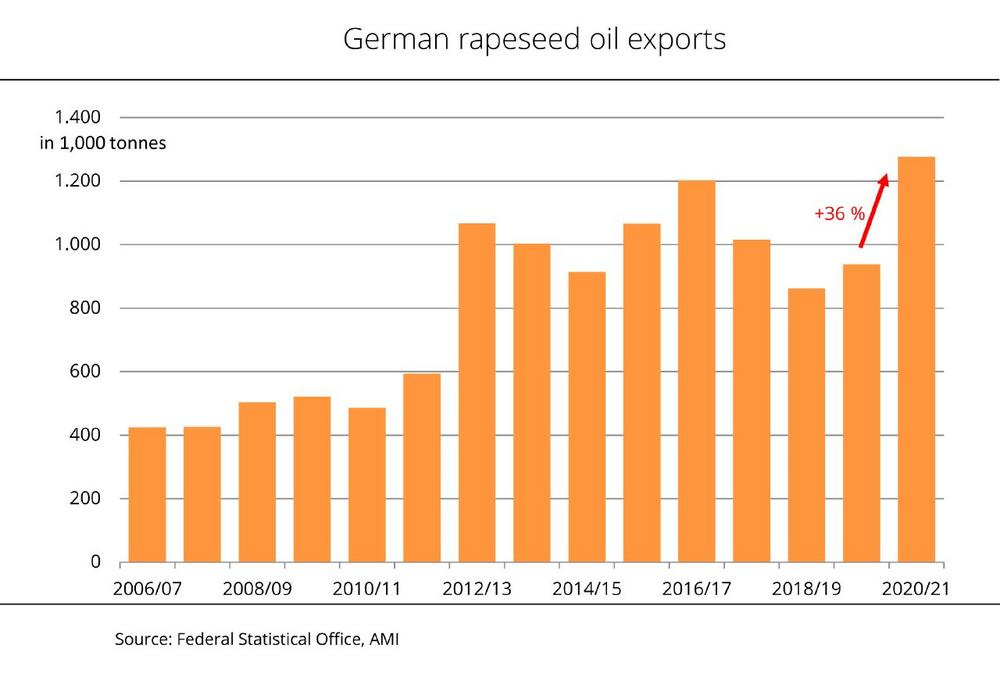The Union zur Förderung von Oel- und Proteinpflanzen (UFOP) has underlined the significance of the European biodiesel industry as the most important recipient of rapeseed oil. The UFOP has ascribed the growth in exports from Germany and import demand from other European states to the low availability of rapeseed and rapeseed oil due to harvest declines throughout Europe. The neighbouring countries also had to meet biofuels mandates to avoid penalties. The association has added that during the winter months of November to April practically only rapeseed oil-based biodiesel can be used for blending to meet winter-grade diesel quality requirements. This genetic edge provided by the fatty acid composition of rapeseed oil entails a sales potential that could only be achieved during this period using hydrotreated vegetable oil (HVO), which is more expensive than rapeseed methyl ester (RME).
The UFOP has recommended that in view of the supply to the market and development of prices the biodiesel industry should consider offering an incentive for farmers to grow sunflowers in 2022 by presenting appropriate forward contracts. The association has pointed out that, along with rapeseed potential, there is also a land and feedstock potential that can be exploited to improve biodiversity and expand crop rotations. In view of the fact that coronavirus-related restrictions can be expected to be maintained or tightened, feedstock supply of used cooking oils and fats is unlikely to increase. The option of counting biofuels based on waste category 1 and 2 animal fats, which will be permitted in Germany for the first time in 2022, will not change this. The UFOP sees this as just a compensation of export volumes that will be missing elsewhere.
The Union for the Promotion of Oil and Protein Plants e. V. (UFOP) represents the political interests of companies, associations and institutions involved in the production, processing and marketing of domestic oil and protein plants in national and international bodies. UFOP supports research to optimise agricultural production and for the development of new recycling opportunities in the food, non-food and feed sectors. UFOP public relations aim to promote the marketing of domestic oil and protein plant end products.
UFOP – Union zur Förderung von Oel- und Proteinpflanzen e.V.
Claire-Waldoff-Str. 7
10117 Berlin
Telefon: +49 (30) 2359799-40
Telefax: +49 (30) 2359799-99
http://www.ufop.de
Telefon: +49 (30) 31904-225
E-Mail: s.arens@ufop.de
![]()
